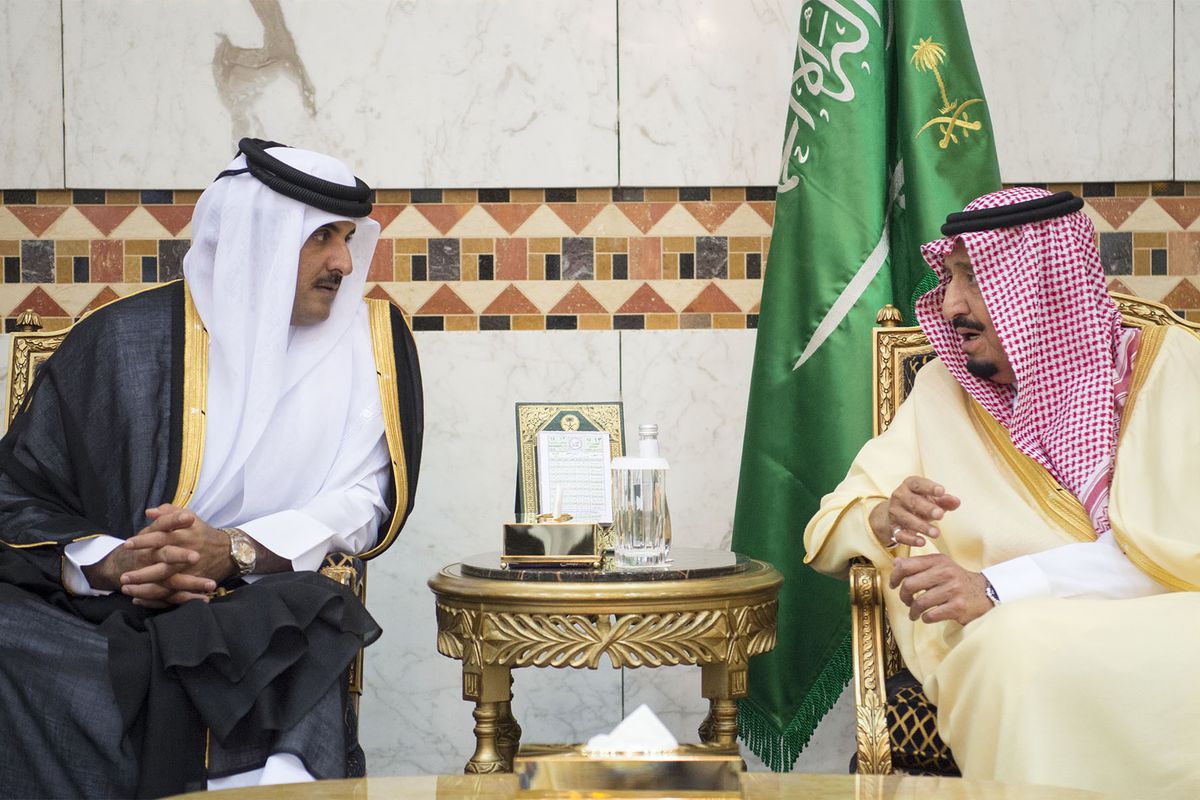No negotiations, says Qatar
July 26, 2017 | Expert Insights

Qatar has said that unless the Saudi Arabia and its allies lift the blockade, the country won’t enter any negotiations.
Background
Saudi Arabia, Bahrain, the United Arab Emirates and Egypt have cut all ties with Qatar in June 2017. The countries alleged that Qatar sponsors terrorist outfits – a charge that Qatar has denied. As a result of the siege, Qatar’s sea links, air links and road links have been cut off.
Saudi Arabia has been critical of Qatar’s friendly ties to Iran. The four states initially put forth 13 demands that they deemed were non-negotiable. They wanted Qatar to shut down state broadcaster, Al Jazeera as well as its Turkish military base. They also demanded Qatar to reduce its ties with Iran.
Kuwait has been mediating the conflict but to little success. The Unites States, which has military and economic interests in the region has also intervened.
Analysis
The Saudi-bloc has backed down from majority of the demands in the initial days. It has now unveiled a set of six agreements for Qatar to comply with. The six principles can be read here.
Qatar too has shown its willingness for a dialogue in the recent weeks. In his first public address since the commencement of the blockade, Qatar’s Emir, Sheikh Tamim bin Hamad Al Thani has said that the country was ready to negotiate with the four nations. But he noted that Qatar’s sovereignty must be respected.
Egypt has taken a strong stance in the process and has remained steadfast in its commitment to the blockade. During this sensitive period, the Saudi king has gone on a vacation leaving the Crown Price, Mohammed bin Salman in-charge.
Qatar, for its part, has made it clear that unless the siege is lifted, it won’t enter any negotiations. Qatar's Defence Minister Khalid bin Mohammed al-Attiyah in an interview with Russia Today noted that “lifting the siege should precede any dialogue.” He added, “If the blockading countries remain reluctant to lift the siege, Qatar will be compelled to resort to the available international legal procedures to lift it.”
Qatar's Minister of Foreign Affairs Sheikh Mohammed bin Abdulrahman Al Thani is currently visiting the United States to seek a diplomatic solution.
Assessment
Our assessment is that Saudi Arabia and its allies no longer have the upper hand in the unfolding crisis. Qatar has surprisingly been able to weather the crisis with some collateral damage. They have been able to avoid a food crisis by ensuring supplies from friendly countries like Turkey and Iran. As we stated earlier, Qatar will not yield to the demands made by the Saudis now and will wait for better terms to negotiate.








Comments